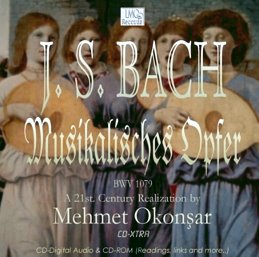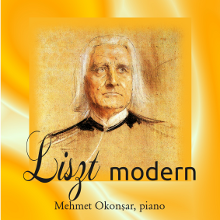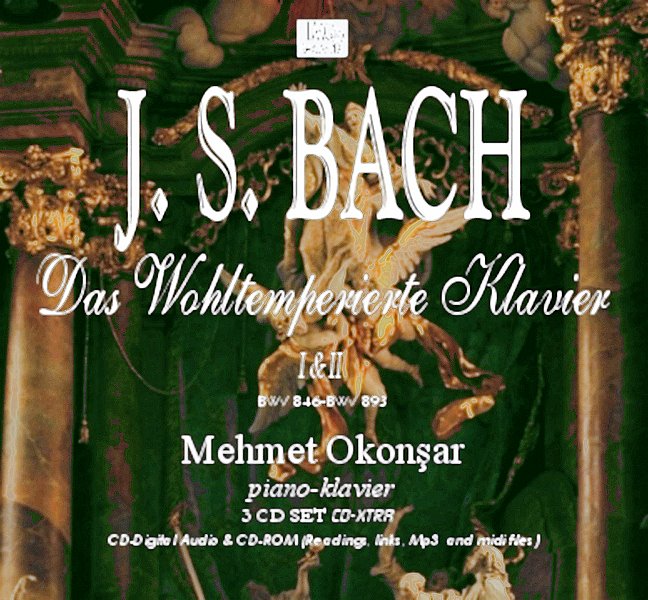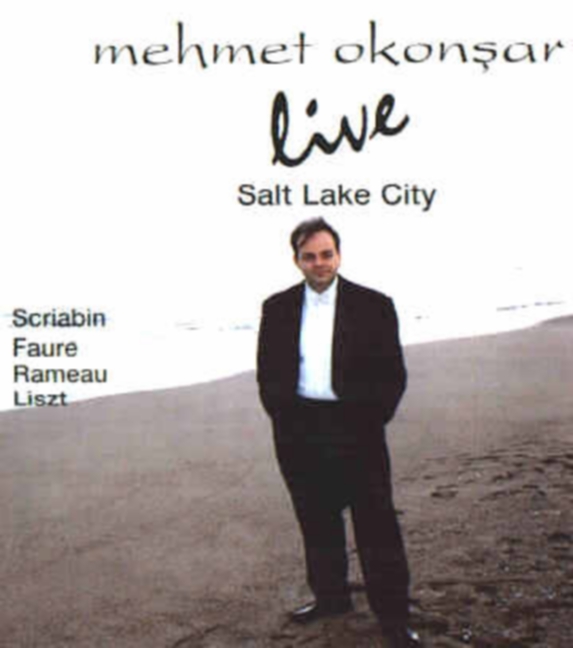
Illiterate Until Forty And Then Becoming One Of Judaism's Greatest Scholars Rabbi Akiba
The
life of one of the first scholars of the Rabbinical literature Rabbi
Akiba

J.S. Bach "Musikalische Opfer"



Recital: "Live at Salt Lake City"

J.S. Bach The Goldberg Variations

Piano Solo Improvisations: "Shadowy Arcade"
All CD's can be auditioned entirely and freely at their respective pages. Click on the images.

J.S. Bach The Goldberg Variations

Piano Solo Improvisations: "Shadowy Arcade"
All CD's can be auditioned entirely and freely at their respective pages. Click on the images.
He developed the annotative approach to the Mishneh, connecting up each traditional practice with a basis within the spiritual texts, and systematized the knowledge that later gave birth to the Mishneh.
He's most likely the very best figures within the Talmud. Aging in meager conditions, he never attended school and was illiterate until forty years old. But he began on a new path and attended early schooling alongside his boy, then moved onto grade school. It had been apparent he had an aptitude for study, so he advanced to be able to connect with the rabbinical academy. Not just was he ordained, but he was elevated being probably the most illustrious leaders of his generation.
Rabbi Akiba has been implied in the rebellion against Rome: Bar Kokhba. He thought the Moshiach (Messiah-Deliverer) was Bar Kokhba, though another rabbis freely made fun of him for that belief; recorded in the Talmud is one rabbi saying "Akiba, grass will grow in your face but nevertheless the boy of David won't came."
Subjected to violent persecution he had to leave his native land. Rabbi Akiba came over bare no-man's lands and deserts. His whole equipage composed of a candle-light, used through the evening to be capable of studying rules and a cock, which gave him the measure of passing time. When the rebellion Bar Kokhba break down, Rabbi Akiba was grabbed by the Roman government tortured for killing.
Numerous tales are passed down about Akiba. But regardless of the wealthy mass of writings by rabbinical sources, only an incomplete portrait may be drafted about the man who marked the way that rabbinical Judaism for virtually two millennium followed.
A trusted tradition narrates that Akiba, at forty, when he was the father of a numerous family, attended with assiduity the Torah learning academy of Lod, his native town, presided over by Eliezer ben Hyrkanus.
Hyrkanus was neighbor to Akiba's father Ernest. The very fact Eliezer being his foremost teacher, as well as the only person whom Akiba designated later "rabbi," may be worth addressing in order to settle a more precise date of Akiba's birth.
It's known that in 95-96 (BCE) Akiba had already accomplished great prominence and, further, he studied for thirteen years before to be a teacher. Thus the start of his many years of study would fall about 75-80.
Sooner than this, Yochanan ben Zakai was living, and Eliezer, being his pupil, may have been held of no authority in Yochanan's lifetime. Consequently, after we accept the tradition that Akiba was 40 when beginning his studies, he must be born about 40-50 BCE.
Besides Eliezer, Akiba had other instructors, mainly Nahum Ant Gamzu and Joshua ben Hananiah. He was on equal footing with Rabbi Gamaliel II, whom he later met. Within a certain sense, Tarphon was considered among Akiba's masters, nonetheless the pupil outranked his teacher, and Tarphon elevated being among Akiba's finest followers.
Akiba most likely remained in Lod as long as Eliezer dwelt there, and moved his unique school to Bene Berak, five miles (Roman) from Jaffa. Akiba also were living for a while at Ziphron, the current Zafran, near Hamath.
Rabbi Shimon Bar Yohai was the very best disciples of Rabbi Akiba. He did not die with the rest of his fellow students. He will be an excellent and saintly scholar who spent years of his existence together with his boy escaping from the Romans. He is the writer of the Zohar by which most of the techniques in the Torah are revealed.
Rabbi Shimon bar Yohai died on Lab B'Omer, the thirty-third day's of the counting within the Omer. His tomb is at Meron. On that particular day, thousands of Jews turn up at Meron to pray while focusing and wishing to be inspired by Rabbi Shimon's desire for the Torah, G-d, as well as his love of the fellow Jews.
Usage rights:
You can use
this article under the Creative Commons License CC-BY. This license
lets you distribute, remix, tweak, and build upon my work, even
commercially, as long as you credit me, by displaying the information
on me given below verbatim for
the original article.
Mehmet
Okonsar is a
pianist-composer-conductor and musicologist. Besides his international
concert carrier he is a prolific writer. Founder of the first classical
music-musicology dedicated blog-site: "inventor-musicae"
as well as the first classical-music video portal: "classical videos".
